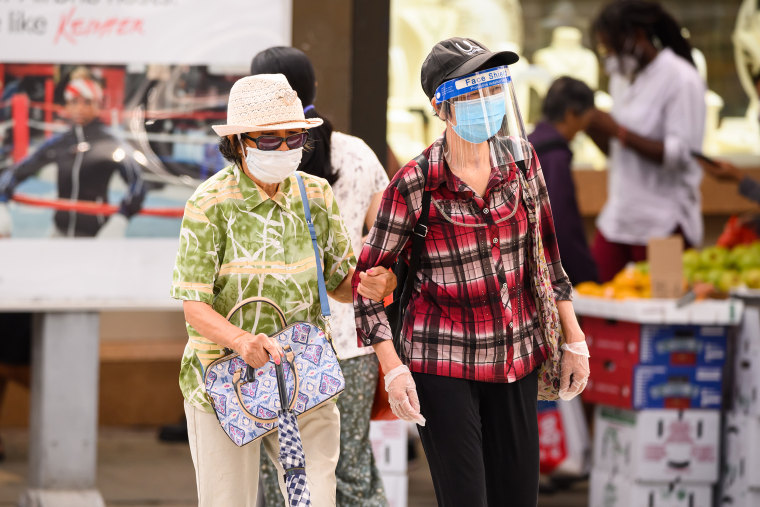New research shows the toll anti-Asian racism has had on Asian American seniors amid the pandemic.
The report, by the hate incident tracking coalition Stop AAPI Hate and the American Association of Retired Persons, found that almost all Asian American elders who experienced hate incidents during the pandemic reported feeling that the U.S. has become “more physically dangerous for Asian Americans.”
“Over the past two years, Covid-19 exacerbated threats to the safety and well-being for Asian American elders ages 60 and up — a community that was already highly vulnerable prior to the pandemic,” researchers wrote in the study, which was released Tuesday. “Anti-Asian hate and violence instilled a sense of fear and anxiety, especially among Asian American older adults in dense, urban areas.”
The report examined data released by Stop AAPI Hate, which collected reports of more than 820 hate incidents against Asian American elders from March 2020 to December 2021. While Stop AAPI Hate collects incidents in 15 languages online, researchers said that incidents targeting Asian American and Pacific Islander elders are typically underreported due to technological, linguistic and cultural barriers.
Researchers revealed that more than a quarter of hate incidents against seniors involved physical assault, nearly double the rate that those under 60 experienced. More than 60 percent of incidents involved verbal harassment or shunning. Elders reported their race, ethnicity and gender as the top suspected reasons for the discrimination they received.
Asian American seniors were more likely to face discrimination on public streets and at businesses, similar to younger people. But seniors were twice as likely to face discrimination at private residences, compared to those under 60.
The attacks have had lasting effects. According to the study, 65.5 percent of those who experienced hate incidents reported stress, compared to 24.2 percent in the overall Asian American senior population. The report also showed that in addition to the mental stress elders faced due to racism and discrimination, they also confronted social isolation during the pandemic, which has contributed to depression, anxiety and decline in physical health. Almost 66 percent of Asian American seniors who reported hate incidents experienced more stress from social isolation, compared to 43.4 percent of those who did not.
But mental health issues among the Asian American senior population often go undetected, the researchers said, due to systemic, cultural and linguistic barriers to treatment, as well as the “long-standing cultural stigma” against seeking help. The study did note, however, that Asian seniors said that seeing an Asian mental health professional would make them feel more comfortable sharing their difficulties.
“Community-based organizations are best positioned to support individual older adults with their immediate needs in times of crisis,” the report said. “Local, state, and federal government agencies, however, can address the structural roots that cause fear, isolation, and mental health challenges through culturally and linguistically responsive programming.”
